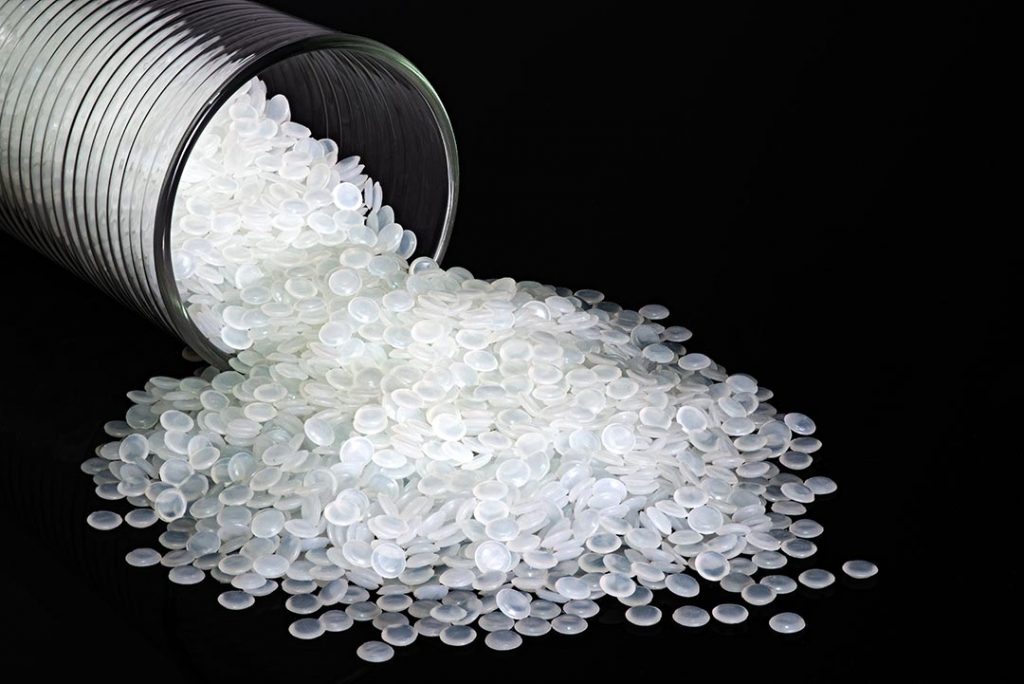
The Association of Plastic Recyclers will endorse third-party PCR certification and the American Chemistry Council released principles for mass balance accounting of recycled content. | Praethip Docekalova/Shutterstock
Consumers may want products with recycled plastic, but how can they trust the items contain post-consumer material? Two industry groups have taken steps to answer that question.
The Association of Plastic Recyclers (APR) unveiled a post-consumer resin (PCR) certification program. Meanwhile, the American Chemistry Council (ACC) released a set of principles for certification standards that trace recycled content through chemical recycling process, which ACC calls “advanced plastics recycling.”
Certifying the certifiers
APR’s program will endorse companies that provide third-party certification of PCR in products. It will also promote APR member companies that receive certification, according to an APR press release. (APR owns Resource Recycling, Inc., publisher of Plastics Recycling Update.)
“The intent of APR’s PCR Certification Program is to actively promote APR member companies that sell certified PCR materials,” Liz Bedard, APR director of Rigid Plastics Recycling Programs, stated in the release. “This program was developed in response to a growing demand from APR members and stakeholders across the plastics value chain.”
APR noted the California law banning thin plastic bags mandated recycled content in thicker reusable bags. APR said that any reclaimer’s PCR that has been certified under the California requirements will be considered certified PCR by APR.
“The APR PCR Certification Program promotes the critical link between the reclaimer actually making PCR and the customer wanting to use PCR,” Greg Janson, president of QRS Recycling and co-chair of APR’s PCR Certification subcommittee, stated in the release. “The program will undoubtedly enhance the brand equity of PCR in the marketplace, helping to ensure that PCR receives the value it deserves.”
Credibly calculating recycled content
Meanwhile, the ACC’s Plastics Division released a set of principles it would like to see in certification standards for chemically recycled content in products.
Under the umbrella of “advanced recycling” are technologies that break down scrap plastics into other chemicals, which can then be purified and fed into equipment producing new plastic, chemicals and fuels. But as Helmut Brenner of Shell Chemicals noted during the chemical recycling workshop at the 2020 Plastics Recycling Conference and Trade Show, calculating recycled content can get complicated when mixing molecules from different sources in production equipment. Mass balance accounting is a technique used to trace the recycled material in such situations, he noted.
In a press release, ACC emphasized the importance of consistent third-party mass balance accounting standards and a transparent certification process.
“Plastics converters, brand owners and retailers will be able to use outputs from advanced plastic recycling technologies with added confidence by relying on these standards for supporting circular economy marketing claims,” Craig Cookson, senior director for recycling and recovery in ACC’s Plastics Division, stated in a press release. “The flow of molecules through the advanced recycling process and back into the production of plastics, chemicals and fuels should be tracked from start to finish in order to certify recycled content in end products.”
ACC’s listing of desired principles for mass balance accounting standards comes as a number of organizations have announced their intent to develop such standards, the release states. Some, such as the International Sustainability & Carbon Certification (ISCC), already exist.


